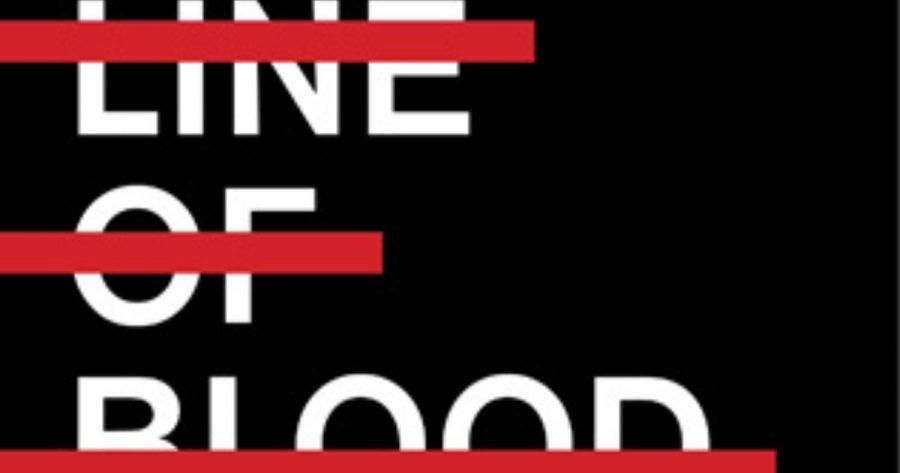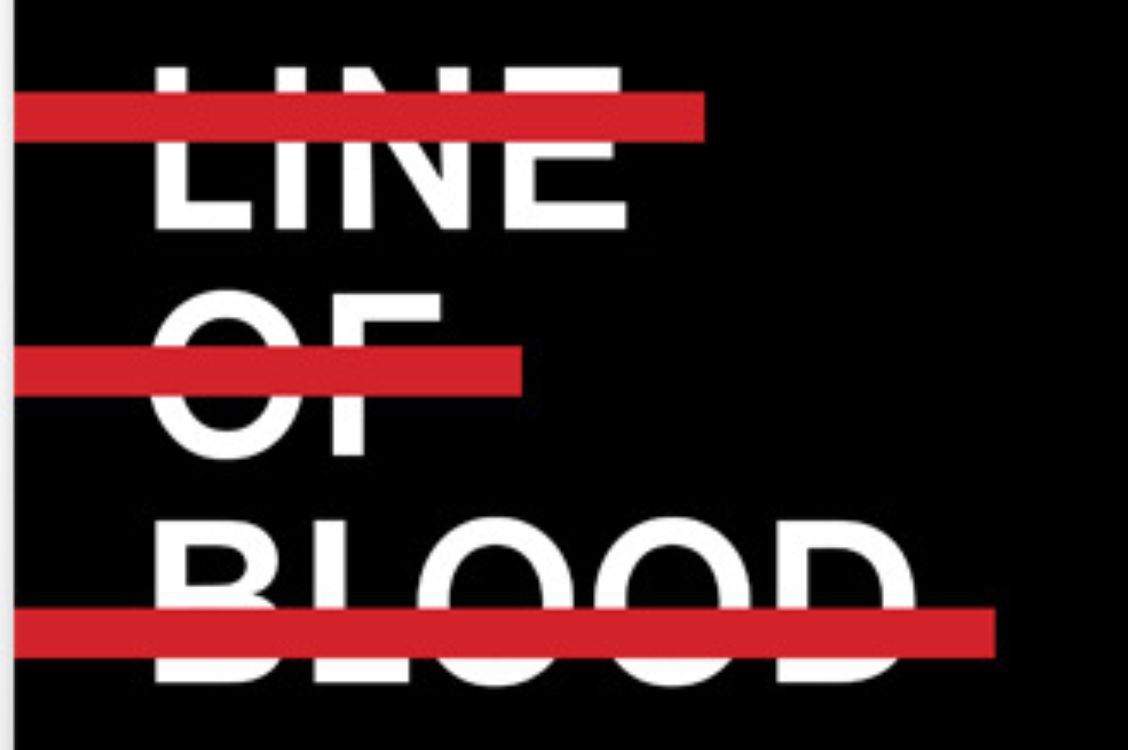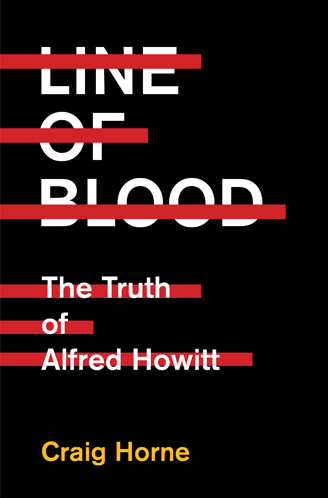
- Free Article: No
- Contents Category: Biography
- Review Article: Yes
- Article Title: The enigmatic Howitt
- Article Subtitle: A troubling, intriguing colonial type
- Online Only: No
- Custom Highlight Text:
Alfred William Howitt is a well-known yet enigmatic figure in Australian colonial history. Born in England in 1830 and raised by literary and politically active parents, Howitt grew up amid an erudite and socially progressive milieu. With his father and brother, he arrived in Australia in 1852, hoping to ‘make it big’ on the Victorian gold fields. Enthralled by the natural environment and the liberties afforded to a gentleman bushman in the colony, Howitt decided to stay on while his family returned to London.
- Featured Image (400px * 250px):

- Alt Tag (Featured Image): Jason M. Gibson reviews 'Line of Blood: The truth of Alfred Howitt' by Craig Horne
- Book 1 Title: Line of Blood
- Book 1 Subtitle: The truth of Alfred Howitt
- Book 1 Biblio: Melbourne Books, $34.95 pb, 303 pp
- Book 1 Cover Small (400 x 600):

- Book 1 Cover (800 x 1200):

Horne argues that Howitt benefited from his parents’ intellectualism yet resisted their spiritualism and liberalism, and grew into a politically conservative personality. Once in the colony, Howitt – to find his feet – used his family connections with the British élite and a string of new ‘landowners’ who had either participated in or profited from colonial violence. He ‘hit the streets looking for a good time’, Horne explains, and via these strategic alliances and his recognised skills, built a name for himself.
![5. Mr. Howitt, the leader of the party ... / search, & relief. Sent to Cooper's Creek. b. Photograph. 13.4 cm x 13.5 cm http://digital.sl.nsw.gov.au/delivery/DeliveryManagerServlet?embedded=true&toolbar=false&dps_pid=FL3253895 from William Strutt - a collection of drawings in watercolour, ink and pencil [...] illustrating the Burke and Wills exploring expedition crossing the continent of Australia from Cooper's Creek to Carpentaria Aug 1860-June 1861. 1st Series [and] 2nd Series, 1846-61 http://archival.sl.nsw.gov.au/Details/archive/110328251](/images/ABR_Digitising_2023/October_2023/Alfred_William_Howitt_circa_1861_-_State_Library_of_New_South_Wales_DL_PXX_3_via_Wikimedia_Commons.jpg) Alfred William Howitt c.1861 (State Library of New South Wales via Wikimedia Commons)
Alfred William Howitt c.1861 (State Library of New South Wales via Wikimedia Commons)
Howitt’s relationship with Indigenous Australians was far from unequivocal, and this is what makes him such an intriguing and troubling character. Early on, as he trekked across the Victorian goldfields, he made few kind remarks about First Nations people, but his subsequent interactions with the Yandruwandha on his expeditions into the remote desert country of South Australia opened his eyes. He understood that the ingenuity and kindness of the Yandruwandha had saved the life of John King, the sole survivor of the Burke and Wills expedition. In ‘one of the few demonstrations of European appreciation for Aboriginal peoples’, Howitt successfully called for public acknowledgment of their role. Nonetheless, Indigenous Australians remained both ‘repugnant’ and ‘curious’ to him, according to Horne. After being appointed Aboriginal Protector for the Gippsland region in 1868, Howitt used his position to study the local Gunaikurnai as exemplars of antiquity, as he had studied the geological, biological, and botanical features of the Antipodes.
His first book of anthropology, Kamilaroi and Kurnai (1880), co-written with the Wesleyan missionary Lorimer Fison, assembled information on Indigenous kinship, language, and social organisation from across the continent. That book is now considered one of the foundational works of the discipline. Many of the Gunaikurnai and Yuin people who worked on Howitt’s ‘Eastwood’ farm in Bairnsdale provided rich cultural information that ended up in Howitt’s numerous anthropological papers, but Horne is right to point out the questionable ethics that underpinned some of this work. Howitt’s ‘ambition’ permitted him to employ unscrupulous methods to extract secret information from people, but perhaps more important to Horne’s narrative is that Howitt stood by silently as the injustices of settler-colonialism continued to damage Indigenous communities towards the end of the nineteenth century. William Barak, the prominent Wurundjeri leader, for example, acted as an interpreter and informant to Howitt, and yet his influential ‘friend’ failed to make representations on Barak’s behalf at a time when the Aboriginal population at Coranderrk were being progressively destabilised.
Powerful as these stories are, Horne draws heavily on Come Wind, Come Weather (1971) – the previous biography of A.W. Howitt, written by another Howitt descendant, Mary Howitt Walker – and his book could have been deepened by greater use of the extensive Howitt archives. There is considerable conjecture in this book about why Howitt did not shine a brighter light on the crimes of settler colonialism; Horne at times engages in some speculative history and creative writing to fill in some of the gaps. Use of the primary source material, which is far more accessible now than in Mary Howitt Walker’s time, may have resulted in greater illumination. The voices of contemporary Gunaikurnai and Yuin people are also notably absent from the narrative. This feels like a missed opportunity, given that Howitt’s writings have been so vigorously interrogated and utilised by Aboriginal communities, and other scholars, in recent decades. Not engaging with these more recent reassessments of Howitt’s legacy means that the book fails to break new ground. Nonetheless, Line of Blood is an act of truth-telling, unapologetically framed within the context of the Uluru Statement from the Heart, which aims to help us come to grips with our nation’s difficult foundations.
Horne should be applauded for resisting the oversimplification of history. He wants readers to know that his ancestor, although someone who conveniently turned a blind eye to colonial violence, also spoke truthfully about the frontier wars as being ‘bloody, and often piteously exterminating’. Howitt engaged with First Nations people, valued, and documented Indigenous knowledge of Country, and took people’s ceremonies, songs, and material culture seriously at a time when most others could not have cared less. We are left with the impression of a man who, despite his deep interest in Aboriginal Australia and his valuable contributions, accepted ideas of racial inferiority and later social evolutionism that now greatly tarnish his memory.


Comments powered by CComment